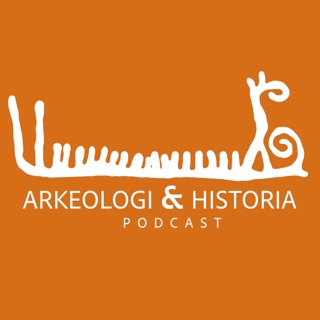
Can We Prevent Aging? Eric Topol on Genes, Lifestyle, and AI in Healthcare
In this conversation, Michael Shermer and Dr. Eric Topol discuss the realties of aging, with particular focus on the role of AI in enhancing patient care and disease prevention, the importance of lifestyle factors, and the limitations of genetic testing in predicting health outcomes. Topol also explains the dangers of ultra-processed foods, their link to inflammation, and the role of GLP-1 drugs in promoting healthier eating habits. The conversation also covers diet, particularly the differences between chicken and red meat, and the significance of sleep for overall health. Plus, consumption of microplastics, cholesterol management and statins, the critical role of social connections in maintaining mental and physical health, and the future of personalized medicine in cancer prevention. Eric Topol is a cardiologist and one of the top ten most cited researchers in medicine, known for his groundbreaking studies on AI in medicine, genomics, and digitized clinical trials. Topol is also the executive vice president and a professor of molecular medicine at Scripps Research, the largest nonprofit biomedical institute in the United States. He was named one of the Top 100 most influential people in health in 2024 by Time. His new book is Super Agers.
18 Aug 1h 17min

Is Nuclear Energy Our Best Shot at Saving the Planet?
Isabelle Boemeke explains how nuclear energy is our best option for ensuring the future of the planet—it can power cities, desalinate water, create carbon-free fertilizer, and heat homes, all with the smallest environmental footprint of any energy source. She also discusses common objections to nuclear energy, including safety concerns and waste management, the potential of microreactors, and the importance of nuclear energy in space exploration. Isabelle Boemeke is a nuclear electricity educator. Her new book is Rad Future: The Untold Story of Nuclear Electricity and How it Will Save the World.
12 Aug 1h 14min

Why the Left Needs Its Own Reckoning
In his new book Coming Clean, Eric Heinze rejects the idea that we should be less woke. In fact, we need more wokeness, but of a new kind. Yes, we must teach about classism, racism, colonialism, patriarchy, and other gross injustices, but we must also educate the public about the left’s own support for regimes that damaged and destroyed millions of lives for over a century—Stalin in the Soviet Union, Mao Zedong in China, Pol Pot in Cambodia, or the Kim dynasty in North Korea. Criticisms of Western wrongdoing are certainly important, yet Heinze explains that most on the political left have rarely engaged in the kinds of open and public self-scrutiny that they demand from others. Citing examples as different as the Ukraine war, LGBTQ+ people in Cuba, the concept of “hatred,” and the problem of leftwing antisemitism, Heinze explains why and how the left must change its memory politics if it is to claim any ethical high ground. Eric Heinze is Professor of Law and Humanities at Queen Mary University of London. He is the author of The Most Human Right: Why Free Speech is Everything (MIT Press), among other books, and has published over 100 articles and has been featured in radio and television and other media around the world. His new book is Coming Clean: The Rise of Critical Theory and the Future of the Left.
11 Aug 1h

Is Traditional Religion Doomed?
Traditional religion in the United States has suffered huge losses in recent decades. The number of Americans identifying as “not religious” has increased remarkably. Religious affiliation, service attendance, and belief in God have declined. More and more people claim to be “spiritual but not religious.” Religious organizations have been reeling from revelations of sexual and financial scandals and cover-ups. Public trust in “organized religion” has declined significantly. Crucially, these religious losses are concentrated among younger generations. This means that, barring unlikely religious revivals among youth, the losses will continue and accelerate in time, as less-religious younger Americans replace older more-religious ones and increasingly fewer American children are raised by religious parents. All this is clear. But what is less clear is exactly why this is happening. We know a lot more about the fact that traditional American religion has declined than we do about why this is so. Christian Smith is the William R. Kenan, Jr. Professor of Sociology and Founding Director of the Center for the Study of Religion and Society at the University of Notre Dame. Smith is well known for his research focused on religion, adolescents and emerging adults, and social theory. He has written many books, including Divided by Faith, Soul Searching, and Moral, Believing Animals. His new book is Why Religion Went Obsolete: The Demise of Traditional Faith in America.
5 Aug 1h 21min

Drowning in Decisions: Do We Have Too Many Choices?
In this episode, Michael Shermer speaks with historian Sophia Rosenfeld about how modern notions of personal choice—from Amazon shopping to Tinder swipes—emerged from centuries of cultural, religious, political, and economic transformation. Was there ever a time when choice wasn’t synonymous with freedom? Why were early ideas of “common sense” and “free will” so limited? And what happens when choice itself becomes overwhelming? From Enlightenment ideals to the sexual revolution and the abortion debate, Rosenfeld traces how our expanding range of options—and the meaning we attach to them—has shaped everything from our romantic lives to our political systems. A revealing look at the hidden history of freedom in a world that sometimes offers too much. Sophia Rosenfeld is Professor of History at the University of Pennsylvania. Her new book is The Age of Choice: A History of Freedom in Modern Life.
29 Juli 1h 26min

Are We Alone? Martin Rees on Aliens, The Fermi Paradox & The Fate of Humanity
What can a lifetime of scientific discovery teach us about the universe—and ourselves? In this wide-ranging conversation, Michael Shermer sits down with Lord Martin Rees, renowned cosmologist, astrophysicist, and former Astronomer Royal, to reflect on the forces that shape scientific success, from personal luck to cultural context. Rees shares insights on the mysteries of cosmology, the search for extraterrestrial life, and the paradoxes that still puzzle humanity. Rees also shares intimate reflections on his friend and Cambridge colleague Stephen Hawking, thoughts on Fermi’s Paradox, and why some truths may forever lie beyond human comprehension. The discussion also turns toward urgent global issues: the promise and peril of AI, ethical dilemmas in a rapidly advancing world, and how religion and terrorism could shape our future.
22 Juli 1h 5min

The True Cost of Conviction
When you are faced with a decision, do you consider the best outcome, or do you consider your deepest values about which actions are appropriate? Steven Sloman contrasts these two primary strategies for making decisions: consequentialism or prioritizing one’s sacred values. He argues that, while both modes of decision making are necessary tools for a good decision maker, people err by deploying sacred values more often than they should, especially when it comes to sociopolitical issues. As a result, we oversimplify, grow disgusted and angry, and act in ways that contribute to social polarization. Drawing on historical and current examples of the two decision-making strategies in action, Sloman provides a thorough overview of the psychology of decision making, including work on judgment, conscious and unconscious decision-making processes, the roles of emotion, and even an analysis of habit and addiction. Steven Sloman has taught at Brown University since 1992. He is the author of Causal Models and a coauthor of The Knowledge Illusion (with Phil Fernbach). His new book is The Cost of Conviction: How Our Deepest Values Lead Us Astray.
15 Juli 1h 18min

Debra Soh and Michael Shermer at FreedomFest 2025
Michael Shermer in conversation with Debra Soh at FreedomFest 2025 in Palm Springs, CA. Video courtesy of FreedomFest. Additional FreedomFest videos can be viewed on CiVL.
14 Juli 19min




















